Faced with the rapid development of digital platforms and increasingly fierce competition, promoting identity and positioning the brand has become a vital factor for the press to affirm its role as an "essential means of information for social life".
No compromise on core values
The brand and identity of a newspaper is not only in its name, logo or presentation style, but more deeply, in the core values that are created and built over time. These are the history, people, culture, vision, style, etc. that make each newspaper address different, helping the public easily identify it. For local newspapers and radio stations, identity is often closely linked to the cultural, historical and life characteristics of the local community. Many readers say that they often choose newspaper products with a clear identity, reflecting honestly and carrying directional values that are suitable for local life and culture. In the context of fierce competition on social networks and digital platforms, along with the merger and consolidation of many press agencies, shaping identity and building a brand will help press agencies create prestige and competitive advantages in the media market.

Lesson 2: Solutions to economic problems
It can be seen that the explosive development of new media has gradually changed the public's news access habits. Instead of watching news on television or reading newspapers, many people prefer to search for brief information and sensational content on social networks and online news sites. Under the pressure of information competition and retaining readers, some press agencies have been chasing after nonsense, useless information, information that is only for the sake of attracting readers, and does not ensure political , orientational, or humane values. This deviation has undermined readers' trust in the press.
Associate Professor, Dr. Bui Hoai Son, a full-time member of the National Assembly 's Committee on Culture and Society, frankly pointed out that: "Orthodox press is not allowed to follow pure tastes, and even more so, it is not allowed to trade core values for views or shares. But at the same time, the press cannot stand outside the technological revolution that is changing the public's information reception behavior every day". From those requirements and challenges, the press needs to make strong changes to attract readers, establish an information "battlefield", promote its own identity, and provide accurate and objective information for the development of the country. To achieve this goal, creating a mark and building a separate brand for each press agency is considered a necessary solution to affirm quality and build trust in the community.
One content in the Draft Law on Press (amended) that has been welcomed and highly appreciated by journalists is the addition of a separate chapter on press activities in cyberspace. Accordingly, the Draft stipulates that general electronic information sites and social networks are strictly prohibited from producing, editing, posting and broadcasting news of a journalistic nature as well as information prohibited by law such as false news, causing division in the great national unity bloc, distorting history, promoting bad customs, superstition, etc.
Lawyer Truong Anh Tu, Chairman of TAT Law Firm, analyzed: this regulation helps to clearly define the boundary between the press and unofficial platforms, protecting the reputation and brand of press agencies. However, it is also necessary to see that in addition to legal protection, press agencies also need to be more proactive in protecting themselves through the production of high-quality, unique content, establishing their own brands to attract readers.
Pioneer in orienting public opinion
Currently, the reorganization of the Party press agency and local radio and television stations in the spirit of Resolution No. 18-NQ/TW, which is being implemented synchronously from the central to local levels, poses many challenges for press agencies when they have to reorganize, change their operating models, methods of operation, as well as reposition their brands for new products. A new point in the Draft Law on Press (amended) is the regulation on the model of "Multimedia main press and communication group" and "Local press group".
According to Dr. Le Hai, member of the Editorial Board of the Communist Electronic Magazine, the formation of media groups is an inevitable trend, helping to perfect the institution and environment of journalism activities and taking advantage of the combined strength of different types of journalism to create multi-platform products, meeting modern trends. This model allows press agencies to concentrate resources, deploy strategies to build identity and brand in a synchronous and consistent manner.
In fact, if we know how to exploit and utilize the identity and brand of the old units to build a brand for the new unit, after the merger, the "press groups" will increase their influence and dominate the market. However, to do this, each unit must have a suitable strategy, avoiding the situation where the old brand is not exploited properly while the construction of the new brand must be done from scratch - which will be costly in both time and resources.
Experience from many press agencies shows that promoting specialized and creative, unique content is an important solution to build identity and shape the brand for the unit. For example, the ethnic language radio channel of the Voice of Vietnam has been successful in producing content specifically for ethnic minorities, not only meeting the information needs but also consolidating the role of "bridging" between the Party, the State and the people, especially people in remote areas. Or recently, Vietnam Television officially performed the task of providing national foreign television services to promote the image of Vietnam - affirming a prestigious and trustworthy media brand, contributing to enhancing the country's position in the international arena.
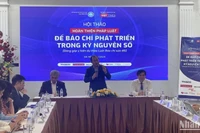
Digital transformation in the Draft Press Law (amended): Shaping the future of Vietnamese journalism in cyberspace
In addition, digital transformation is the key for journalism to break through in the context of fierce competition. Applying modern technology, from artificial intelligence to data analysis, helps press agencies optimize content, personalize reader experiences and increase interaction from products with their own mark. Professor, Dr. Ta Ngoc Tan emphasized: "Digital transformation is not only a trend but also a decisive factor for the existence of journalism in the new era". Therefore, grasping and mastering technology to create unique products, thereby promoting identity and brand positioning, especially in the context of increasingly deep international integration, cannot be delayed, if press agencies and journalists do not want to be left behind in the digital age.
In recent times, the use of data analysis technology to understand readers' needs has helped many major newspapers in the world and in Vietnam such as Nhan Dan, Vietnam News Agency, VietNamNet, Tuoi Tre, etc. create appropriate content, attracting a large number of readers. For example, the unique and impressive media products of Nhan Dan Newspaper during the celebrations of the 70th anniversary of Dien Bien Phu Victory Day, the 50th anniversary of the Liberation of the South, the reunification of the country, the 135th anniversary of President Ho Chi Minh's birthday, etc. have helped position the Nhan Dan Newspaper brand with Gen Z - people who are only used to interacting on social networks.
At the same time, an extremely important factor in shaping identity and building a brand at a press agency is editorial culture because this is the foundation for harmonizing the individual identities of member units and the common brand of the press agency after mergers and acquisitions. Editorial culture needs to be based on core values such as social responsibility, humanity and commitment to the community. Press agencies need to invest in staff training, encourage creativity and strengthen professional ethics, avoiding following temporary trends. Building an editorial culture not only helps preserve identity but also creates motivation and confidence for the press team, especially after mergers and acquisitions. On the other hand, according to Dr. Nguyen Duc Dung, Vietnam Academy of Social Sciences, "journalistic identity is not only a cultural value but also an economic asset, helping press agencies build trust and expand the market".
The Vietnamese revolutionary press is facing a great opportunity to affirm its role as a sharp propaganda tool, a forum for the people and a pioneer in orienting public opinion. In the context of restructuring the press apparatus, maintaining identity and promoting the brand is both an urgent requirement and a decisive factor for the existence and sustainable development of the press. With the support of the Party and State's policies, along with the right and appropriate strategies, press agencies can completely overcome all challenges and move forward firmly in the new era.
>> Solutions to economic problems
>> Lean will lead to changes in management thinking
Source: https://nhandan.vn/giu-vung-ban-sac-khang-dinh-thuong-hieu-post886781.html








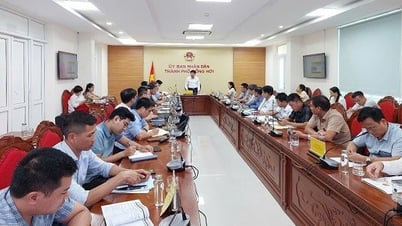














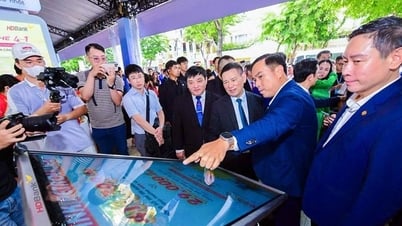

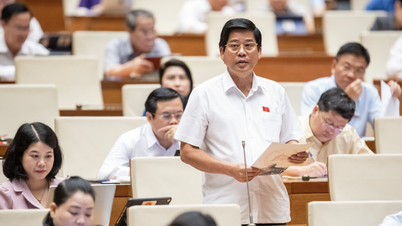

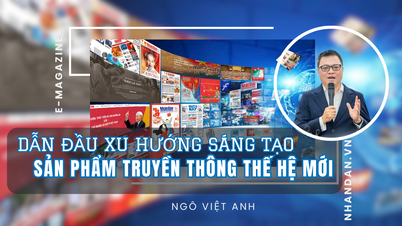




















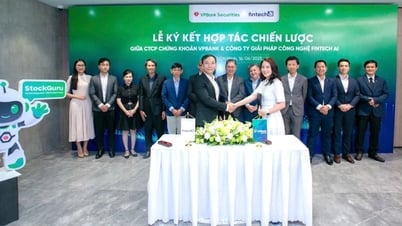





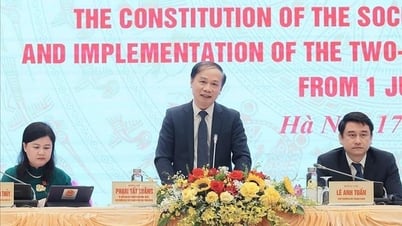





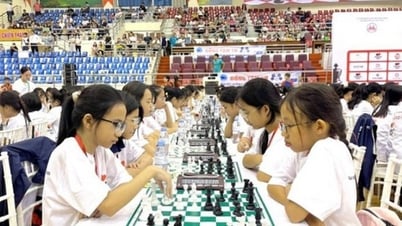

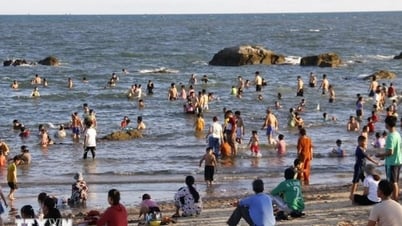

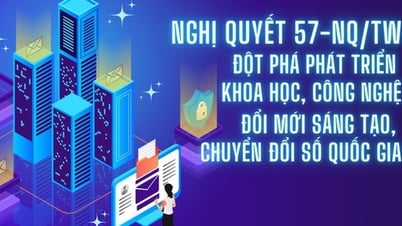





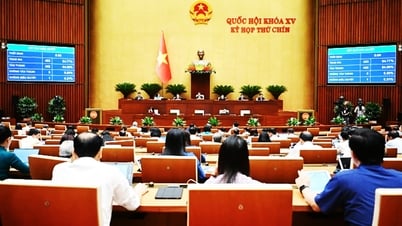

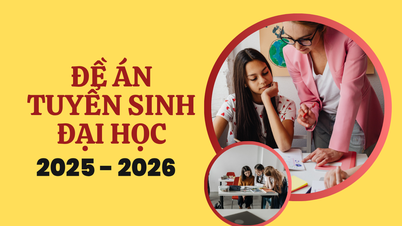



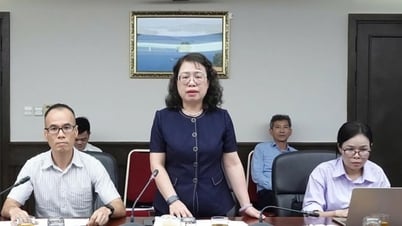










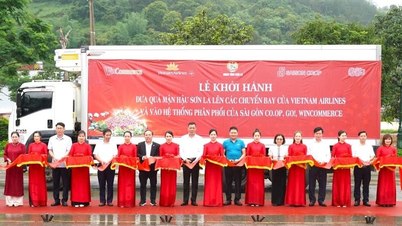





Comment (0)